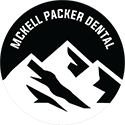If you are planning on travelling abroad in the near future, you may want to visit a dentist before your trip, especially if you have a history of dental issues. However, accidents can happen, and it important to know what you should do in a dental emergency, when you are unable to visit your dentist.
What Classifies as a Dental Emergency?
Common dental emergencies include a prolonged toothache, a cracked or broken tooth, and a dislodged tooth. Whilst finding a suitable dentist is one of the first reactions to a dental emergency, there are other actions you can take to address the emergency immediately.
Toothache
If you have a toothache, rinse your mouth and use floss to remove anything that might be stuck in your teeth. You can take over-the-counter painkillers to help with the pain. However, if the ache lingers and you can’t wait for a fix until you return home, you may need to find a dentist.
Broken or Cracked Tooth
You will need to find a dentist and should not wait until you get back to your home country. However, rinsing your mouth and applying a cold compress to the outside of your cheek can help reduce the pain and swelling until you see a professional.
Dislodged Tooth
If your tooth has been completely knocked out of your mouth, you need to find and prepare the tooth for reinsertion (if possible). When handling the tooth, always hold it by the crown and not the roots. Rinse the whole tooth, taking care not to touch any exposed tissue. Hold the tooth in the now empty socket in the mouth and get as quickly as you can to a dentist. This is to keep the tooth alive.
If it is too painful or there is too much blood, transport the tooth to the dentist’s office in a cup of milk. Time is of the essence in this case as the likelihood of saving the tooth decreases after about 30 minutes.
Tips for Traveling
A dental emergency is a scary experience, especially while traveling. However, some initiative and planning can ensure you know how to respond should a disaster strike.
- Go in for a checkup: If you know you are currently having problems with your teeth, or have a history of gum disease or cavities, you should visit the dentist before your trip. Your dentist can look for signs of problems you’ll need to monitor while traveling and give you tips on how to care for your teeth and respond to an emergency.
- Get some dental insurance: A temporary dental plan may be needed to protect you while traveling overseas.
- Travel prepared: Travel with plenty of toiletries to ensure you practice good oral health while you’re away from your dentist. If you’re experiencing pain, travel with over-the-counter painkillers.
- Mind your diet: You can decrease your risk of having a dental emergency by minding what you eat overseas. You could avoid eating hard candies that could cause a crack or chip in your tooth; and if you suffer from sensitivity, do not eat or drink anything that could aggravate the problem.


